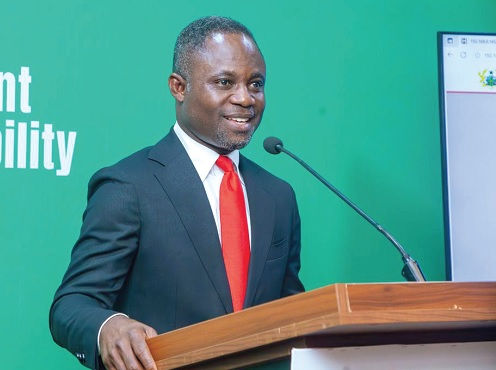Ghana Joins International Community To Commemorate World Diabetes Day Celebration (PICS)
- Think News Online
- Nov 14, 2022
- 3 min read

Ghana has joined the International Community to commemorate World Diabetes Day in Accra.
This year’s celebration was aimed at raising awareness of the growing burden of Diabetes and strategies to prevent and manage the threat.
Delivering a speech on behalf of the World Health Organization (WHO) Representative to Ghana, Francis Kasolo, Public Health Specialist at the World Health Organization, Dr. Elizabeth Juma said “Africa’s diabetes statistics illustrate the depth of the challenge; 24 million adults are currently living with diabetes, with that number predicted to swell by 129% to 55 million by 2045”
She added that last year, Diabetes mellitus took the lives of 416,000 people on the continent, adding that it is forecast to become one of the leading causes of death in Africa by 2030.
“Importantly, diabetes is the only major noncommunicable disease (NCD) for which the risk of dying early is increasing, rather than decreasing. Similar epidemiological trends are reflected in Ghana as Type-2 Diabetes (T2D) affects approximately 6% of adults and the prevalence is expected to increase”
She also revealed that response efforts are constrained but the fact that more than one in every two people in Africa living with Diabetes mellitus have never been diagnosed.
Dr. Juma added that increased access to diagnostic tools and medicines, particularly insulin, is one of the most urgent areas of work.
To accelerate progress on Diabetes and other NCDs, she disclosed that the WHO developed the Global Diabetes Compact.
She explained that the vision of the Global Diabetes Compact is to reduce the negative impacts of the disease and ensure that everyone living with Diabetes has access to equitable, comprehensive, affordable and quality treatment and care.
She ceased the opportunity to appeal to government of Member States to promise investment in essential products such as insulins, glucometers and test strips.
“As WHO, we commit our full support to the requisite training of health workers in the prevention and management of NCDs at districts and community level, to improve availability of these services.
“I would also like to urge African governments to adopt and customize the global targets for diabetes, as part of recommendations to strengthen and monitor diabetes responses within the national NCD programmes”
“To Ghanaians, I cannot overemphasize the importance of healthy and balanced diets, combined with regular exercise, not smoking, maintaining a healthy weight, and limiting alcohol consumption. This will go a long way to protecting individuals from Type 2 diabetes and other NCDs”
Taking her turn, the Deputy Minister for Health, Madam Tina Mensah said “Studies conducted in Ghana estimate the prevalence of diabetes to be between 2.6% to 9%. Ghana Health Service records an average of 200,000 cases of diabetes reporting to heath facilities annually”
Touching on cost of diabetes care, she further said “Although the direct cost of care is covered by National Health Insurance, extra costs in terms nutritional support are borne by the patient, his/her families and/or providers through out-of-pocket payments”
Stressing on low awareness of diabetes, the Deputy Minister said “A landscape assessment on Non-Communicable Diseases (NCDs) conducted in 2020 reported that only 19.2% of respondents at the national level knew about the NCD policy and strategy. These are documents which sets the direction for Ghana with respect to NCDs”
She added that Ghana should appreciate all the efforts undertaken by partners to support diabetes care in both children and adults.
Below are some pictures:




Story by: Joshua Kwabena Smith








Comments